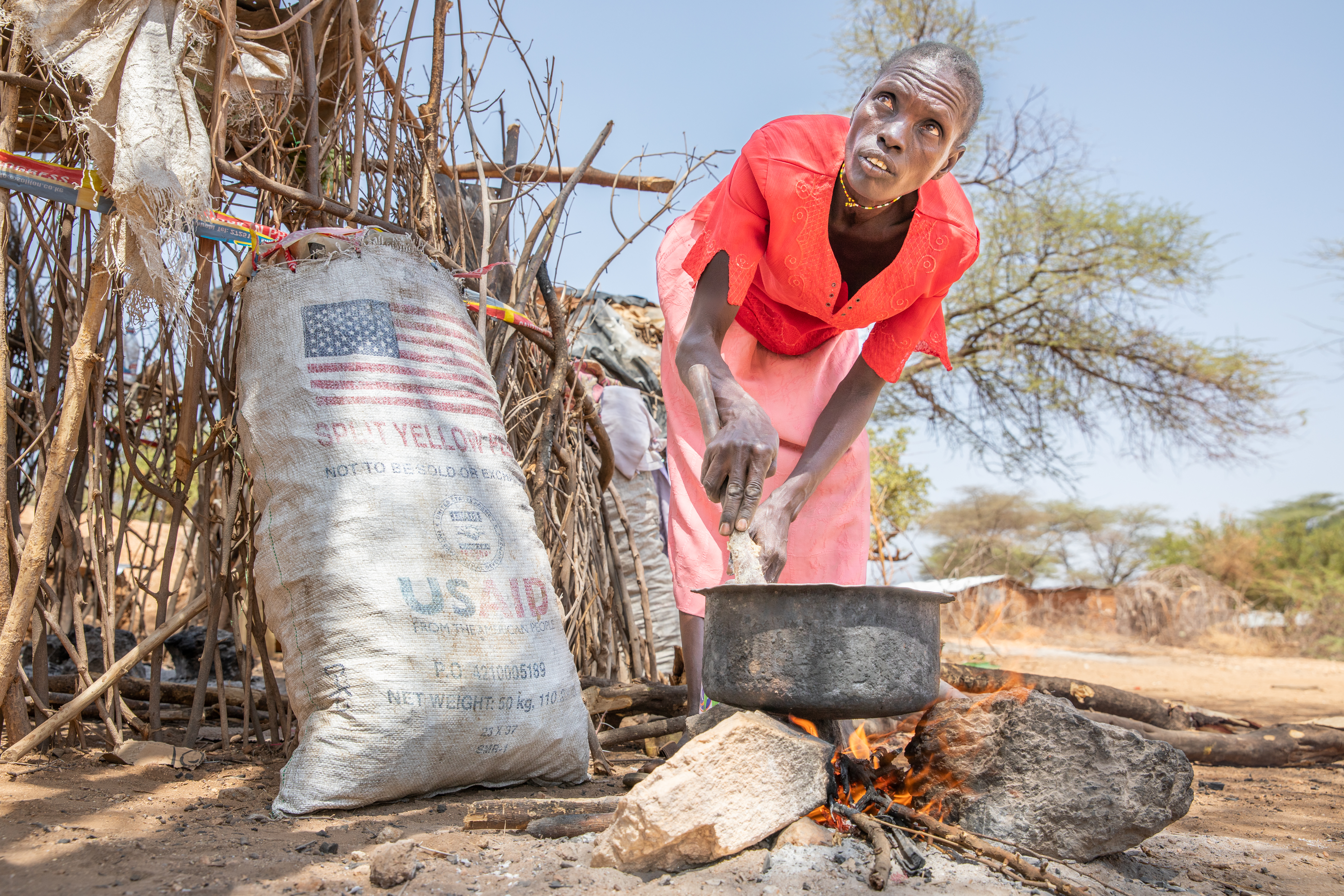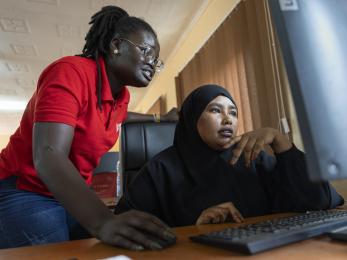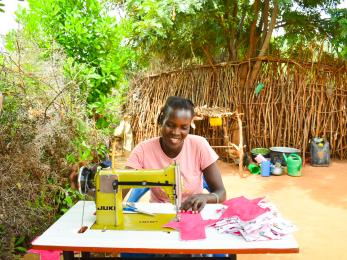Picturing a brighter future: One woman's journey to serve her community through photography

When Hayat first attended a Mercy Corps career selection orientation, she wanted to sew, despite her parents’ wishes for her to seek out a career in the medical field.
When she left two days later, she wanted to be a photographer.
At the orientation, she learned of her community’s immediate need for a female photographer. There are students who need ID photos for exams and brides who need a photographer for their weddings.
Hayat knew that she was the right woman for the job.
Meeting a local need
The only other photographer in Mahweet, the village Hayat calls home, is a local man.
“I took this career because in my community there is only one man who is taking pictures on his phone and printing them out,” Hayat says. “In our culture it’s not allowed for a woman to have her photo taken like this. By doing this career I will be supporting my community.”
The lack of female photographers in her village results in many young women having to travel long distances to get their pictures taken.
“I like [photography] because I want to help my community. I want to serve my community,” Hayat says. “Sometimes when a woman wants to have her picture taken, she has go to Hodeidah. It costs money and time.”
For Hayat, photography is more than an art form, it’s an opportunity to help other women.
Hayat finished secondary school, which means she completed the traditional 12 grade cycle. However, according to Hayat, many young women in Yemen don’t get to complete their educations, often stopping around ninth grade, during exam time, because their families cannot pay to travel to a larger city to get ID photos taken. Without proper ID photos, students can’t take their exams.
The conflict in Yemen has left families in financial distress. Financial insecurity has left thousands of people across Yemen in poverty and unable to afford food, let alone travel to get their pictures taken.
“I want to be a photographer because sometimes people are taking their daughters to a larger town, to Hodeidah,” Hayat says. “And because of the poverty and the low income, families don’t have the transportation costs to go there and find a female photographer and come back. If I am a success, I will be the only woman photographer in my village.”
Finding a career amidst crisis
Even before the conflict, millions of families were vulnerable to financial instability. Reports say that half of Yemeni families lived below the poverty line before the conflict broke out in 2014.
Hayat’s family is one of the many families that are financially insecure as a result of the ongoing conflict. Her parents make a living in agriculture and her siblings work in the medical field.
Many people in Yemen continue to work despite not receiving salaries, including Hayat’s siblings.
“The main challenges are that there are no salaries, including for my sister. My brother does not have financial support. He is a pharmacist. My father works at a farmer, and he sells mangoes from his lands,” Hayat says.
Career planning is a daunting task for any 20-year-old, not to mention a 20-year-old who’s living through a civil war. Nevertheless, three weeks into her photography class, Hayat has goals and aspirations for her budding career as a photographer.

Should she and her photography business succeed, it will be monumental for her and her community. Her business would be the first female-owned photography company in Mahweet.
Her business would increase women’s access to a photographer with high-quality equipment and would allow for her clientele to save money by cutting travel costs and support a local business.
Sharing fresh perspectives
Hayat’s photography business is one way she’s asserted her independence as a young woman. Despite facing pressure to go into the medical field, Hayat chose to pursue photography to both earn a salary and support her community. Many Yemeni women face these pressures, according to Hayat.
“Another difficulty is women don’t have the chance to select their careers by themselves,” Hayat says.
Hayat also wants to bring more attention to what’s happening in her home country, as conflict between the government and non-government actors continues into its fourth year.
“I want people to know about Yemen and support Yemen because more crisis is coming to Yemen. Women cannot work and men are losing their salaries. Women did not have a chance to continue their education,” Hayat says.
Despite the conflict and the challenges her community is facing, Hayat remains hopeful.
“I want to open my own shop in my village, to support my family and to support my community,” Hayat says.


